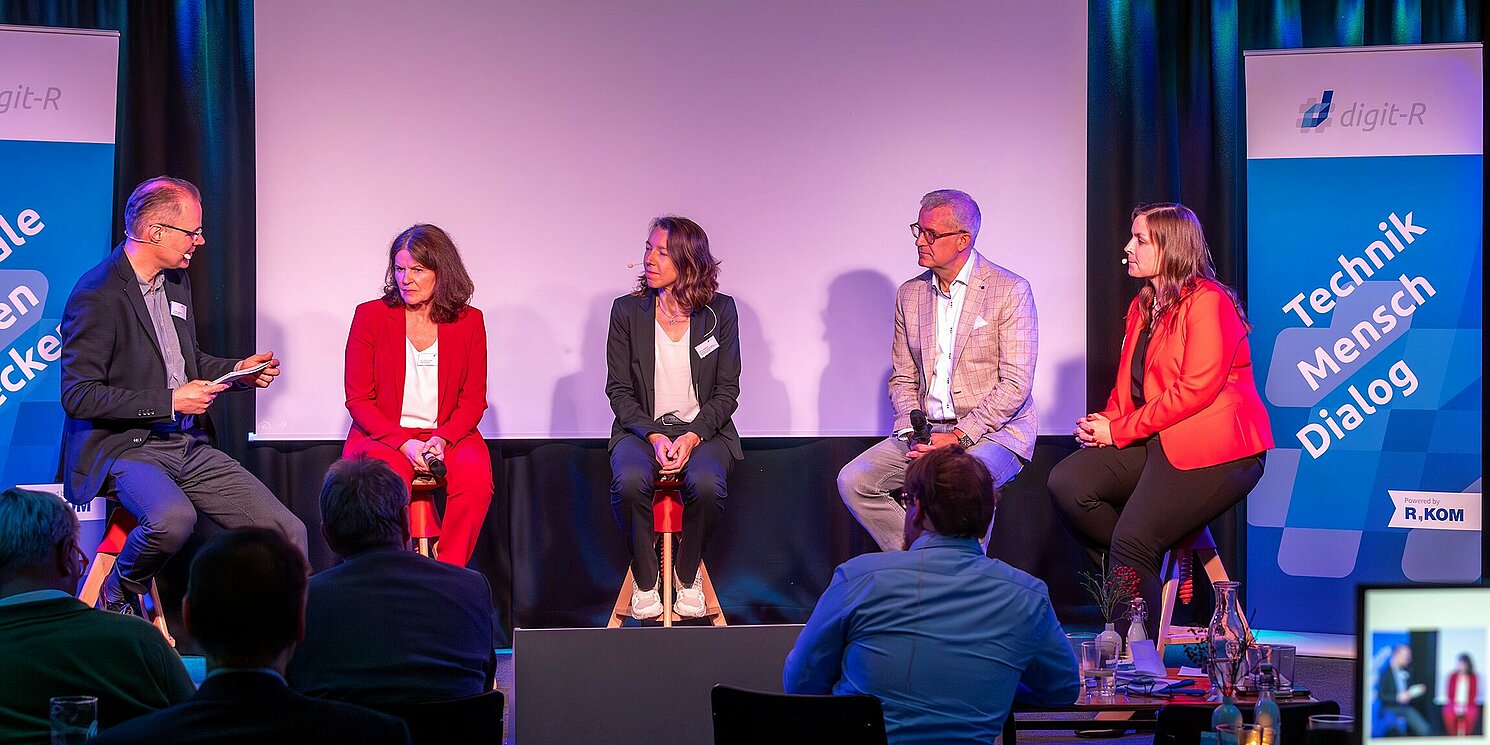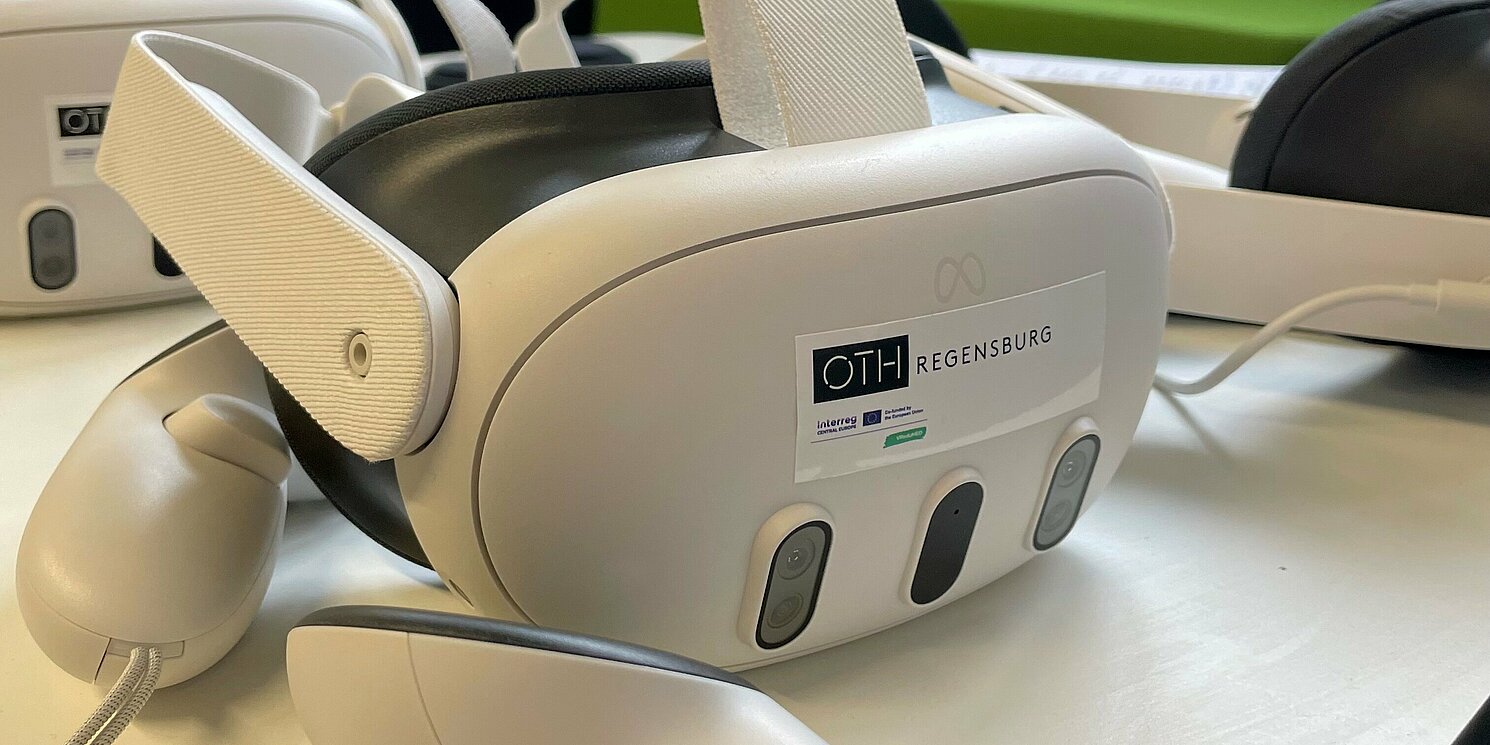Learning 4.0 is not only a technical challenge, but also a pedagogical one. How Learning 4.0 can succeed in nursing training, for example, is demonstrated by an international research project currently being carried out at OTH Regensburg in the Nursing Science degree programme. This VReduMED project (‘We connect the world of virtual reality with the healthcare sector’) is investigating and trialling how virtual reality (VR) and augmented reality (AR) can be used as valuable tools in nursing training.
VReduMED: a European research project
The aim of the project, which is being carried out internationally and in five EU countries, is to firmly establish VR in training for the nursing professions throughout Central Europe. The Nursing Research Laboratory at OTH Regensburg, headed by Prof Dr Christa Mohr, is involved in the research consortium for Germany together with the Bavaria-wide network ‘Strategische Partnerschaft Sensorik e.V.’.
‘Learning 4.0 - how digital education succeeds’
As part of the #digit-R event series launched by R-KOM, the event ‘Learning 4.0 - how digital education succeeds’ took place at Regensburg's ‘Degginger’ in mid-October 2024. The focus was on the question of what role AI and digital offerings play in schools, universities and adult education today. Alongside other educational institutions, Prof Dr Christa Mohr and Anselm Stadler from OTH Regensburg were invited to give a lecture and take part in a panel discussion to present their project.
They were able to clearly demonstrate the opportunities arising from the increased integration of digital methods in the education sector. For example, students can realistically analyse and practise complex nursing scenarios such as resuscitation following an accident using VR glasses and immersive simulation in the VR studio set up at OTH Regensburg.
Interactive technology meets collaborative learning
Both ‘interactive technologies’ and ‘collaborative learning’ are important pillars when talking about ‘Learning 4.0’. While interactive technologies such as virtual reality (VR), augmented reality (AR) and gamification promote hands-on and immersive learning, digital tools such as VR glasses and virtual simulations enable joint ‘collaborative learning’, regardless of physical presence. ‘Both points are important aspects that should be increasingly used in future nursing training; this development requires digital skills on the part of both teachers and students,’ says Prof Dr Mohr.
‘Are we meeting tonight to learn in VR?’
The project team led by Prof Dr Mohr can only confirm what general surveys already show: That the majority of learners want digital tools and find them beneficial for their learning motivation and performance. To support students on the Nursing Science degree programme in this, they have recently been given the opportunity to borrow the VR glasses that were purchased as part of the VReduMED project and take them home with them. Students can then learn and practise alone or together with other students with whom they arrange to meet in the virtual room.
VR goggles for external care facilities from autumn
This loan offer for students is valid until autumn 2025, when the VR goggles and the associated equipment will be sent to external healthcare and nursing facilities that have taken part in the ‘Train the Trainer’ workshops in the VR lab at OTH Regensburg. The series of workshops is part of the VReduMED project and an important step in introducing the participating nursing educators and personnel development managers from various healthcare facilities to the use of VR. The aim of the workshops was to explicitly get teachers from external institutions that train the next generation of nurses interested in digital nursing training. As the feedback from participants shows, this already seems to have been a great success.


